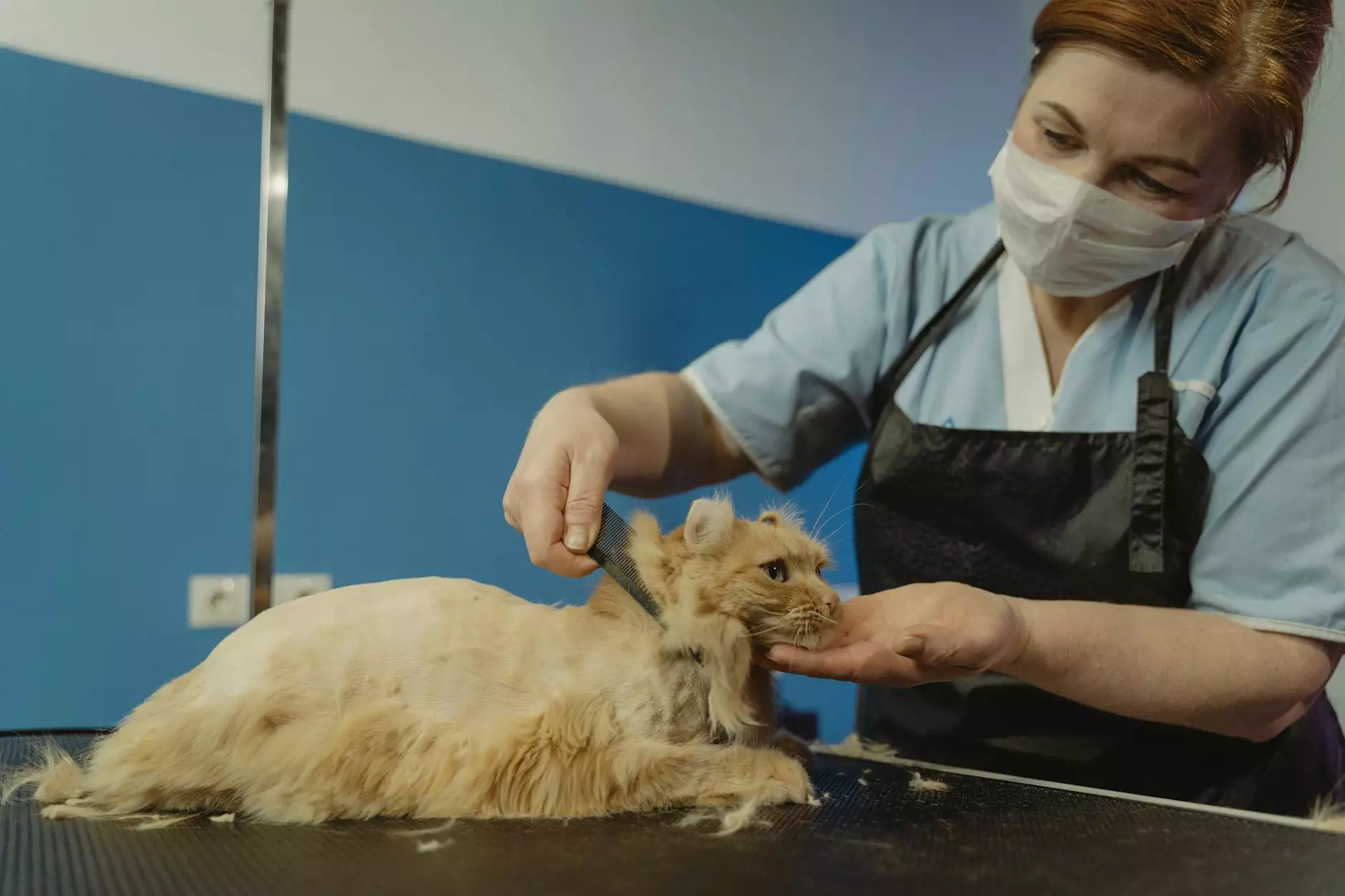Veterinary Medicine for Horses: A Comprehensive Guide

Veterinary medicine for horses is a specialized field dedicated to the care, treatment, and overall health of equine patients. This branch of veterinary science encompasses a wide array of practices crucial for the well-being of horses, ranging from preventive medicine to surgical interventions and emergency care. In this extensive guide, we will explore various aspects of equine veterinary medicine, the critical services offered, the latest advancements, and how pet services and veterinarians contribute to the field.
The Importance of Veterinary Medicine for Horses
Horses are remarkable creatures that require comprehensive care to maintain their health and performance. As companions, athletes, and workers, horses serve various roles in human society, making their health a priority. Veterinary medicine for horses plays a crucial role in ensuring:
- Prevention of Disease: Regular veterinary visits help prevent diseases through vaccinations and health screenings.
- Early Detection: Veterinarians can identify health issues before they become severe, allowing for prompt treatment.
- Performance Maintenance: For performance horses, regular check-ups ensure they are fit and healthy, optimizing their capabilities.
- Emergency Care: Accidents can happen; having access to veterinary services ensures that horses receive immediate attention when needed.
Common Health Issues in Horses
Understanding common health issues can help horse owners recognize when to seek veterinary assistance. Below are some prevalent conditions that equine veterinarians frequently encounter:
1. Colic
Colic refers to abdominal pain in horses and can result from various causes, including dietary changes, intestinal blockages, or infections. Symptoms include:
- Restlessness
- Pawing at the ground
- Inability to eat
- Rolling or lying down excessively
Colic can be life-threatening; therefore, immediate veterinary care is essential.
2. Lameness
Lameness is a common issue affecting a horse's ability to move, often resulting from injuries, arthritis, or hoof problems. Signs include:
- Hesitation to move
- Favoring one limb
- Changes in gait
Veterinarians utilize diagnostic tools like x-rays and ultrasounds to evaluate lameness properly.
3. Respiratory Issues
Horses can develop respiratory problems due to allergies, infections, or environmental factors. Signs include:
- Coughing
- Nasal discharge
- Labored breathing
Effective treatment may involve medications, changes in environment, or addressing allergens.
Veterinary Services for Horses
Equine veterinary clinics offer a wide range of services tailored to meet the unique needs of horses. Here's an overview of the essential veterinary services available:
1. Preventive Care
Preventive care is the cornerstone of equine health management. It includes:
- Regular health check-ups
- Vaccinations against common diseases
- Dental care, including floating teeth
- De-worming programs to prevent parasite infestations
2. Diagnostic Services
Veterinarians use various diagnostic techniques to evaluate a horse's health, including:
- X-rays to view bone structures
- Ultrasound for soft tissue evaluation
- Blood tests for assessing internal health
- Endoscopy for examining internal organs
3. Surgical Procedures
In some cases, surgical intervention is required. Common surgeries include:
- Soft tissue surgeries (e.g., abscess drainage)
- Orthopedic surgeries for joint or bone issues
- Colic surgery to resolve intestinal blockages
4. Emergency Services
Veterinary clinics provide emergency services to handle acute health crises. Quick responses can save lives. Common emergencies include:
- Severe injuries
- Colic episodes
- Respiratory distress
Advancements in Equine Veterinary Medicine
Equine veterinary medicine has evolved significantly over the years, with advancements improving diagnostic accuracy and treatment outcomes. Notable developments include:
1. Telemedicine
Telemedicine allows veterinarians to provide advice and follow-up care through virtual consultations. This innovation has become invaluable, particularly in remote areas.
2. Regenerative Medicine
This involves using stem cells and other therapies to repair damaged tissues, particularly in joints and tendons. Regenerative medicine has revolutionized the treatment of chronic lameness and injury.
3. Advanced Diagnostic Imaging
Technologies such as MRI and CT scans have enabled veterinarians to see inside a horse’s body with unparalleled clarity, aiding in accurate diagnoses.
Choosing the Right Veterinarian
Selecting the best veterinary service for your horse is critical. Consider the following:
- Qualifications: Ensure the veterinarian is licensed and has experience in equine medicine.
- Specializations: Some veterinarians specialize in specific areas such as sports medicine or internal medicine.
- Facility Resources: Choose a clinic with adequate facilities for diagnostics and emergency care.
- Reviews and Recommendations: Seek recommendations from fellow horse owners and read online reviews.
The Role of Pet Services and Pet Stores
Beyond veterinary care, various pet services and pet stores contribute to the health and happiness of horses. These services include:
1. Nutrition Experts
Many pet stores employ nutrition specialists who can guide horse owners on the best feed and supplements, enhancing overall health.
2. Grooming Services
Regular grooming not only keeps a horse looking its best but also contributes to skin health and comfort.
3. Training and Behavior Services
Professional trainers and behaviorists can help address specific training needs, ensuring that horses are well-adjusted and safe to handle.
Conclusion
In conclusion, veterinary medicine for horses is an essential aspect of equine care that encompasses preventive, diagnostic, and therapeutic services. By ensuring regular veterinary visits, addressing health issues promptly, and utilizing the advancements in equine medicine, horse owners can ensure the health, performance, and well-being of their equine companions. The collaborative efforts between veterinarians and pet service providers ultimately contribute to a comprehensive care approach, fostering a healthier equine population.
For more information about equine veterinary services, visit bluepearlsmed.com, where you can find a wide range of services dedicated to the health and happiness of your horses.









